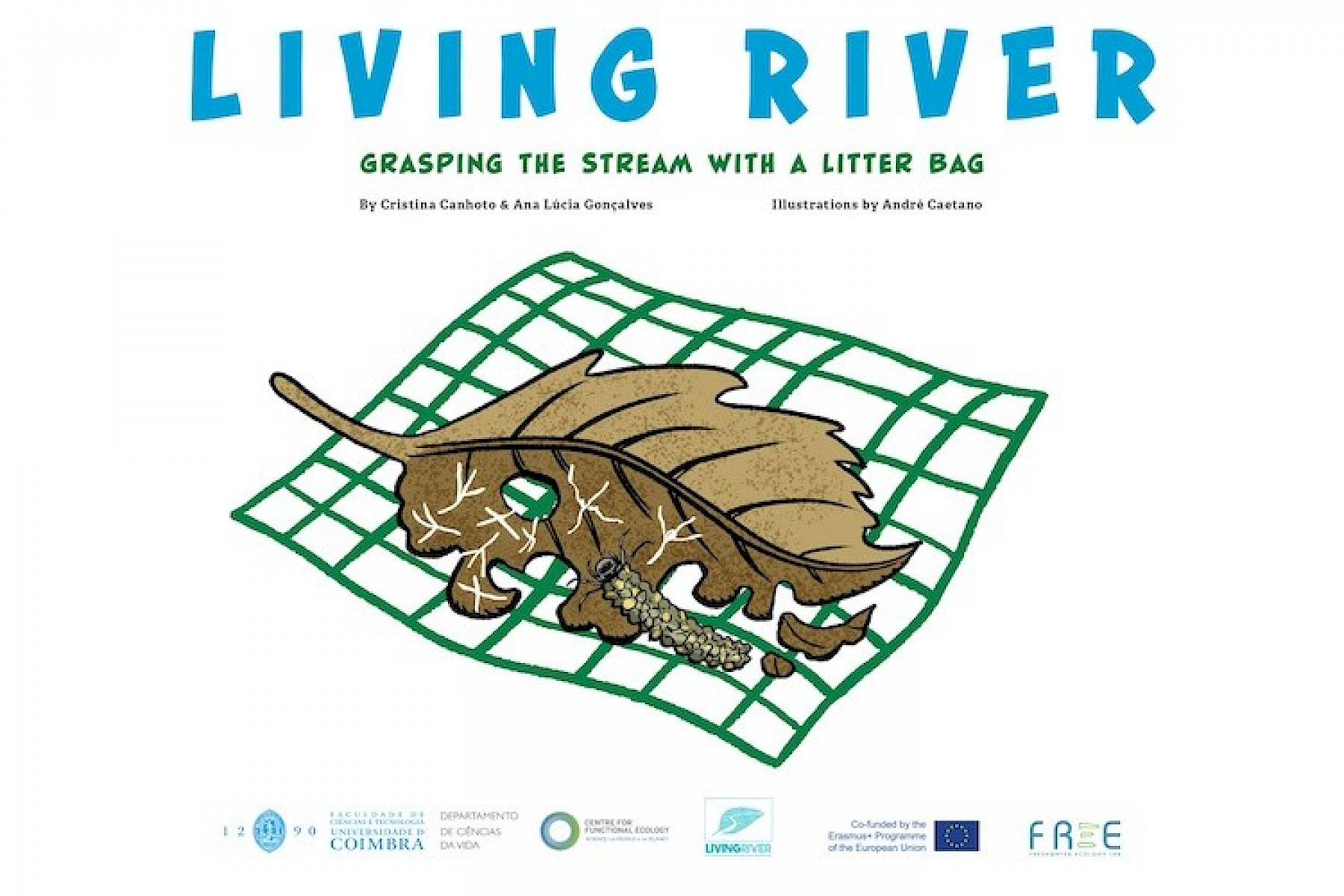UC researchers create comic books to encourage citizen science for watercourses protection
The two comics explain the procedures to be performed in the field and in the laboratory
Cristina Canhoto, Ana Lúcia Gonçalves and Aingeru Martínez, from the University of Coimbra (UC), created two comic books to alert the school community and society to the need to care for and protect water courses.
With illustrations by André Caetano, the two comic books, entitled “Grasping the Stream With a Litter Bag” and “Which Should I Eat?”, explain the procedures to be performed in the field and in the laboratory, respectively, to assess the functional integrity of the streams and of the effects of anthropogenic activities on aquatic organisms.
The comics were produced under the European citizen science project “LivingRiver - Caring and protecting the life and culture around rivers and streams” and are available at http://cfe.uc.pt/profile/news/300 and at http://www.livingriver.eu/. This citizen science project is dedicated to the knowledge and protection of water courses, bringing together researchers and non-governmental organizations from Portugal, Spain, Romania and Turkey.
In this consortium, coordinated by the Portuguese Environmental Education Association (ASPEA), the Center for Functional Ecology - Science for People & the Planet team, from the Faculty of Sciences and Technology of the University of Coimbra (FCTUC), is responsible for the implementation and elaboration of support materials, within the scope of river ecology, to be used by different training agents, both national and international ones.
According to Cristina Canhoto, Ana Lúcia Gonçalves and Aingeru Martínez, “this form of communication, appealing and accessible to non-specialists of various age levels, seems to add value in clarifying and rigorously implementing techniques, which are not always familiar to students and the community in general».
Within the scope of the project, small films were also produced that help to understand the functioning of small water courses, namely the process of decomposition of leaves, in addition to alerting to the impact of human action on rivers.
Source: Notícias UC

